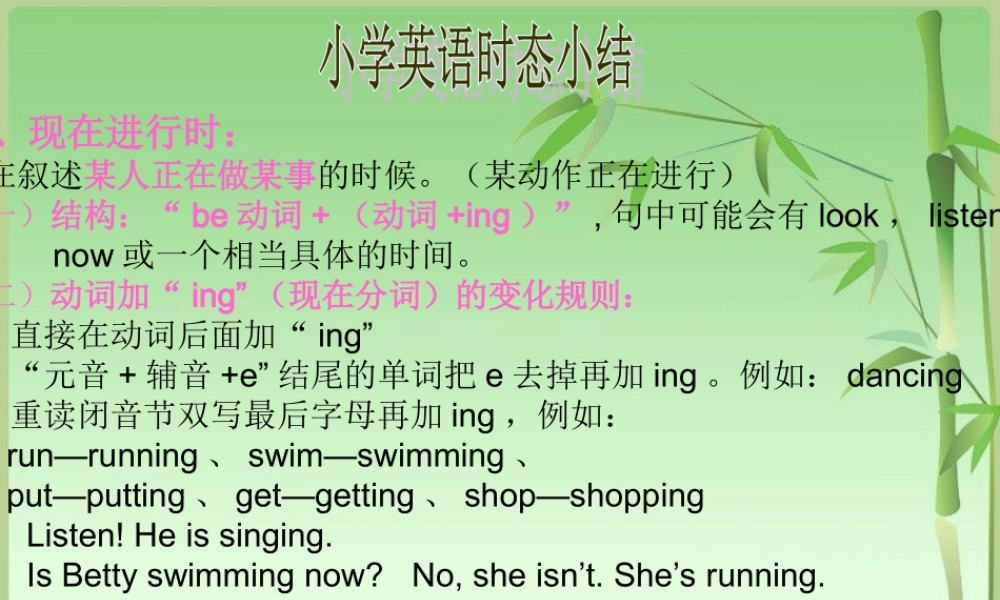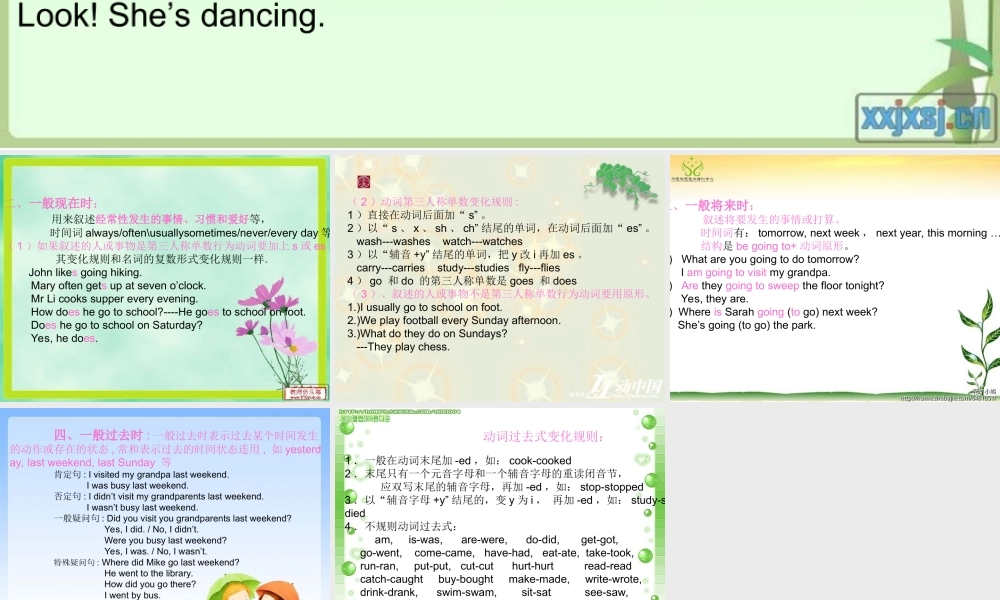一、现在进行时:用在叙述某人正在做某事的时候。(某动作正在进行)(一)结构:“ be 动词 + (动词 +ing )” , 句中可能会有 look , listen , now 或一个相当具体的时间。 (二)动词加“ ing” (现在分词)的变化规则: 1 、直接在动词后面加“ ing”2 、“元音 + 辅音 +e” 结尾的单词把 e 去掉再加 ing 。例如: dancing3 、重读闭音节双写最后字母再加 ing ,例如: run—running 、 swim—swimming 、 put—putting 、 get—getting 、 shop—shopping1.) Listen! He is singing.2.) Is Betty swimming now? No, she isn’t. She’s running.3.) Look! She’s dancing. 二、一般现在时: 用来叙述经常性发生的事情、习惯和爱好等, 时间词 always/often\usuallysometimes/never/every day 等。( 1 )如果叙述的人或事物是第三人称单数行为动词要加上 s 或 es , 其变化规则和名词的复数形式变化规则一样。 John likes going hiking. Mary often gets up at seven o’clock. Mr Li cooks supper every evening. How does he go to school?----He goes to school on foot. Does he go to school on Saturday? Yes, he does. ( 2 )动词第三人称单数变化规则 :1 )直接在动词后面加“ s” 。2 )以“ s 、 x 、 sh 、 ch” 结尾的单词,在动词后面加“ es” 。 wash---washes watch---watches 3 )以“辅音 +y” 结尾的单词,把 y 改 i 再加 es 。 carry---carries study---studies fly---flies4 ) go 和 do 的第三人称单数是 goes 和 does( 3 )、叙述的人或事物不是第三人称单数行为动词要用原形。1.)I usually go to school on foot.2.)We play football every Sunday afternoon.3.)What do they do on Sundays? ---They play chess. 三、一般将来时: 叙述将要发生的事情或打算。 时间词有: tomorrow, next week , next year, this morning … 结构是 be going to+ 动词原形。1.) What are you going to do tomorrow? I am going to visit my grandpa.2.) Are they going to sweep the floor tonight? Yes, they are.3.) Where is Sarah going (to go) next week? She’s going (to go)...


